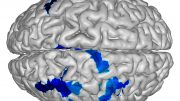
A comprehensive review has uncovered a significant research gap in understanding the links between biodiversity loss, global pandemics, and climate change. With only 128 studies out of over 1.8 million addressing these interconnected threats, the paper calls for a multidisciplinary approach to find integrated solutions that avoid unintended consequences and promote a sustainable, biodiverse planet.
Integrating research on the spread of infectious diseases, the decline in biodiversity, and climate change could provide mutually beneficial solutions for the health of our planet.
A scientific analysis has uncovered a significant lack of studies exploring the links between three critical risks to the health of our planet, despite United Nations reports indicating that one million species face extinction, a worldwide pandemic has led to more than six million excess deaths, and a record-breaking year of global temperatures.
“When we began to look into it, we had suspicions the number of studies would be low, but not that low,” says Dr. Jonathan Davies, a researcher with the University of British Columbia’s Biodiversity Research Centre who led the study, published in The Lancet Planetary Health.
“There are misperceptions in the research community that more work in this area has already been done—but when you look for studies investigating the mechanisms linking the three crises, there isn’t much there at all. I believe the majority of people would prefer to live in a more sustainable and biodiverse world, and empirical data show that people are healthier and have an increased feeling of well-being when closer to nature.”

Cold snaps in Canada’s Okanagan wine region have resulted in significant loss of grapes, while simultaneously increasing the risk of grapevine fungal disease in surviving vines. Credit: Isidora Silva-Valderrama, University of British Columbia
In a review of over 1.8 million research articles published over the last decade, Dr. Davies and his team uncovered only a minuscule number of studies—128— investigating inter-connected drivers across infectious disease spread, biodiversity loss, and climate change.
Human malaria was cited as a prime example of an emerging poly-crisis being supercharged by overlapping pressures — climate change impacting mosquito distributions, development, and vectors in ways that aren’t straightforward to predict.
The Need for Integrated Solutions
The paper analyzed research studies investing in either infectious disease spread, biodiversity loss, or climate change. While roughly 40,000 studies considered two of the areas in conjunction, only 505 combined research on all three areas. And only 128 actually investigated the mechanistic links connecting all three threats. And in those cases, the studies are overly focused on just three areas: infectious disease in amphibians, forest health, and Lyme disease.
The research team outlines how scientists and policymakers can better study the links and feedback between the crises—making it possible to identify pathways with win-win-win outcomes and also avoiding unintended consequences of only taking action in one area, and ignoring others.

University of British Columbia biodiversity researchers uncover a concerning knowledge gap integrating the study of infectious disease spread, biodiversity loss, and climate change. Credit: Isidora Silva-Valderrama, University of British Columbia
“Greater effort needs to be made to search for solutions with cross-benefits,” adds Dr. Alaina Pfenning-Butterworth, who conducted the study while at UBC Botany.
“For example, planting huge numbers of new trees in order to sequester carbon can appear like a solution to climate change, but may lead to unanticipated consequences —such as loss of native diversity and monoculture forests that are at increased risk of disease outbreaks.”
The paper also argues that despite the best efforts of the research community and funding agencies, scientists from different disciplines need to work together more closely, including veterinary schools, medical schools, ecologists, conservation biologists, and computer scientists.
“I believe the majority of people would prefer to live in a more sustainable and biodiverse world, and empirical data show that people are healthier and have an increased feeling of well-being when closer to nature,” says Dr. Davies.
“But there’s broad scientific consensus that ‘business as usual’ is unsustainable, and we risk approaching a planetary tipping point beyond which reversing course will become exponentially more difficult. We have a valuable window of opportunity to decide how our future looks.”
Reference: “Interconnecting global threats: climate change, biodiversity loss, and infectious diseases” by Alaina Pfenning-Butterworth, Lauren B Buckley, John M Drake, Johannah E Farner, Maxwell J Farrell, Alyssa-Lois M Gehman, Erin A Mordecai, Patrick R Stephens, John L Gittleman and T Jonathan Davies, April 2024, The Lancet Planetary Health.
DOI: 10.1016/S2542-5196(24)00021-4









“…, significant research gap in understanding the links between biodiversity loss, global pandemics, and climate change.”
The unstated assumption is that the currently popular paradigm about climate change is correct and the solution is to ‘simply’ stop using fossil fuels. The politically contentious alternative working hypothesis — that the Earth has exceeded its optimal carrying capacity — is rarely discussed. When the scientific evidence is presented to support that view, it is typically shouted down by those who appeal to scripture. Admittedly, there is probably no morally acceptable quick solution to reducing human population.
As close as this author gets to acknowledging the core problem is when he remarks, “I believe the majority of people would prefer to live in a more sustainable and biodiverse world, and empirical data show that people are healthier and have an increased feeling of well-being when closer to nature.” Implicit in that view is that just because technology CAN sustain a human population much larger than the optimal, highly-processed foods, synthetic landscapes, and crowded living conditions may not be good for human’s bodies or psyches. Perhaps the rising suicide rates may reflect that.
Current efforts to reduce world temperatures may be ineffective because those willing to speak disagree that it is just because of growing CO2 and CH4 concentrations. When the COVID pandemic shut down travel and commerce in early-2020, anthropogenic CO2 emissions declined as much as 14-18% in the month of April alone. Yet, the Fall-Spring seasonal ramp-up phase of CO2 concentrations was indistinguishable in slope and peak (May) from 2019 and 2021. Anything said that calls into question the current paradigm either gets ignored by the mainstream media, or censored in the comments sections of Yahoo and MSN. I have had scientifically verifiable explanations, of why the impact of methane is exaggerated, consistently rejected by MSN, either by the ‘Submit’ button not working, or rejected with the excuse that it somehow violates unspecified parts of their Community Guidelines.
Microsoft’s ‘Copilot’ consistently gave incorrect answers about methane when I asked about it in a climate change context. It readily admitted to the errors, and immediately provided the correct answers. Why did it not provide the correct answers initially? However, at the end, it acknowledged that the ‘truth’ would evaporate into the aether because it doesn’t incorporate its advanced findings into its programming or preferred database. Unsuspecting, naive users will be inclined to accept the initial responses, leading to them being misinformed.
There is an old adage that there are always two sides to a dispute. If one side is suppressed, then readers are only getting a half-truth; in other words, a lie. Freedom of speech is praised by everyone, just like motherhood and apple pie. However, actions speak louder than words. And, science isn’t immune to the political and economic pressures to toe the line on accepted paradigms.